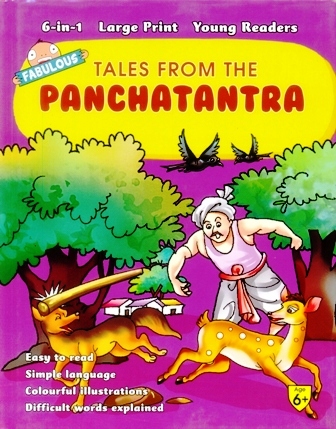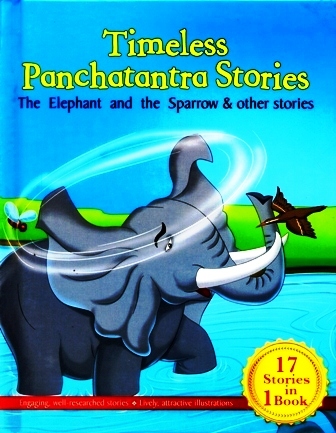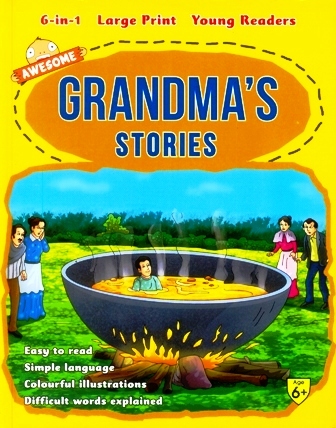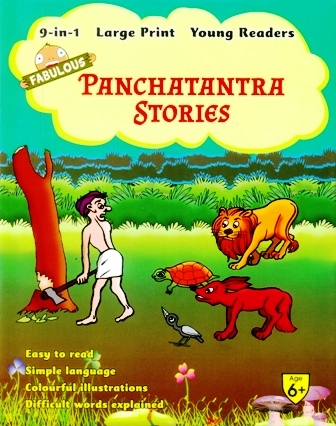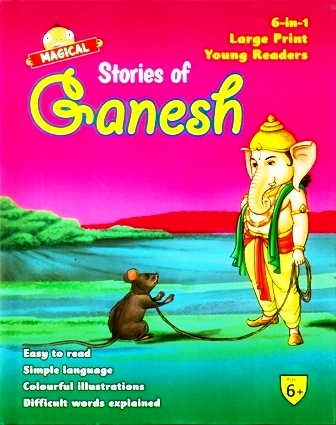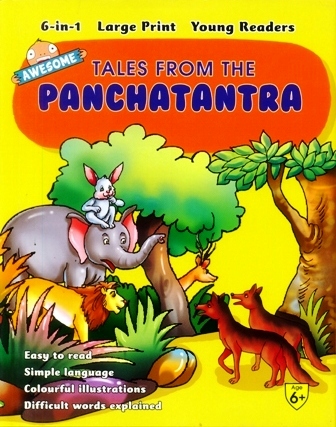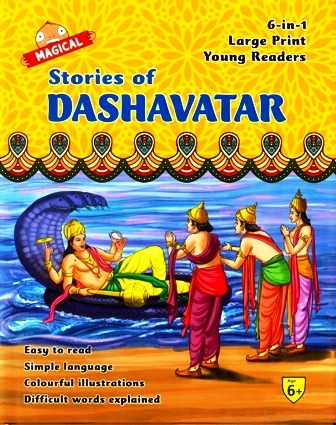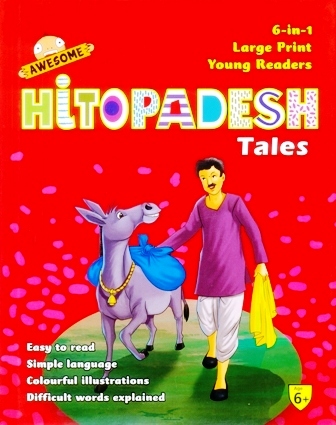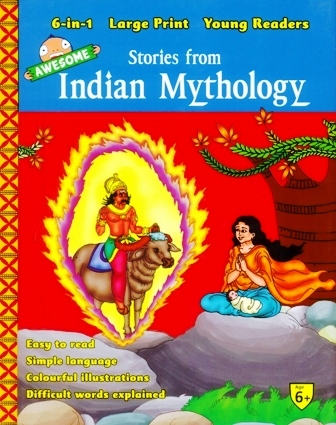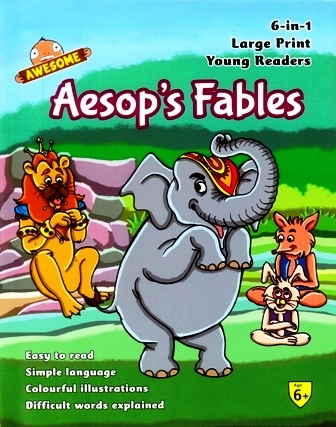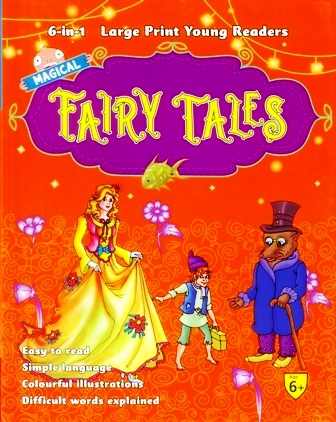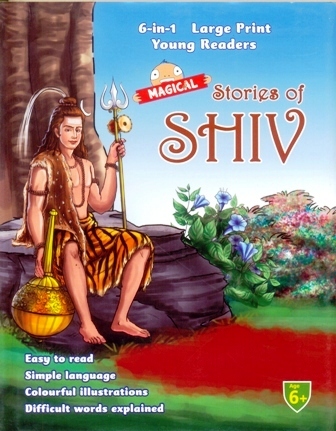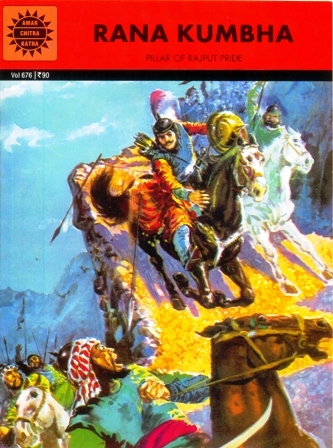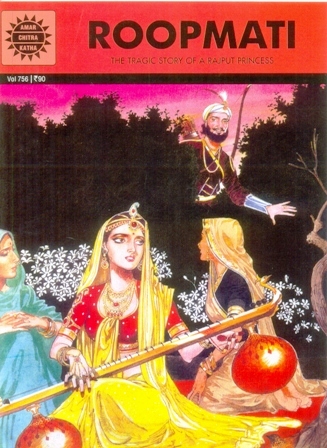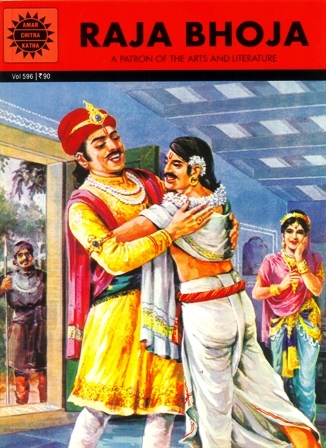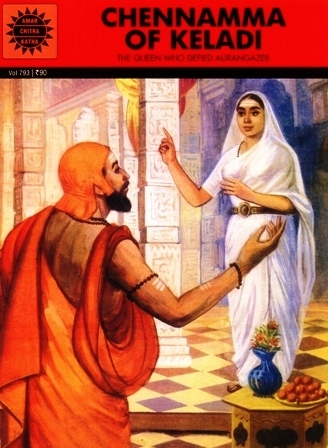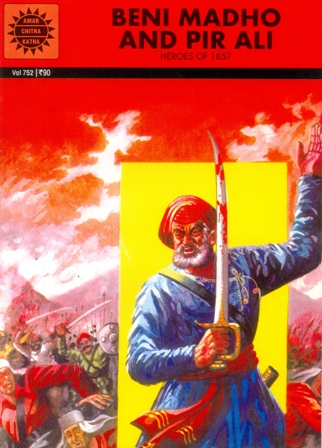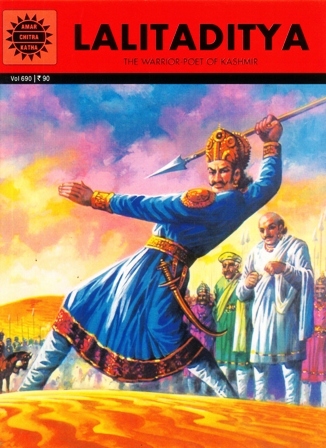-
TIMELESS PANCHATANTRA STORIES ( 17 IN 1)
The panchatantra is an amalgamation of inspiring moral stories, which have been adored by the young and old alike, since ages. legend has it that amarashakti, king of mahilaropya city in south india, appointed renowned scholar pandit
-
Magical Stories of Ganesh (6 in 1)
Easy to read simple language colourful illustrations difficult words explained. Ganesa is a God everyone likes, not just because he is Chubby and lovable, but also because he is clever and heroic. He is also considered a God who removes obstacles in your path. Typically, temples to this elephant-headed God are found everywhere - big and small, since people consider that praying to him would help bring success. How did Ganesh get an elephant's head? How did he come to be the Scribe for the epic Mahabharata? These, and many other Stories, make for delightful reading in this colourful volume that has simple language and evocative illustrations, along with a glossary of difficult words. Happy Reading.
-
Rana Kumbha
Victory for Mewari!' His father's last words seemed to spur the young ruler on to ever greater feats. His success on the battlefield raised Rajput pride as high as the magnificent tower at Chittor, which he completed in 1448. Tirelessly subduing mighty sultans as well as sly traitors, Rana Kumbha ensured that his name was inscribed as one of the land's most worthy sons.
-
Roopmati..
The story of Roopmati, the princess of Dharampuri and Baz Bahadur, the Sultan of Mandu, is one of India's greatest love stories. From the day of their fateful meeting with the sultan, the princess loved no one else, sacrificing all just to be one with him. Defying every norm she married him. But their happiness was short lived. The Mughal Emperor Akbar wanted Mandu and commanded his general, Adham Khan to march on it.
-
Raja Bhoja
Amidst the many wars he fought, Raja Bhoja, the ruler of Malwa, always found time to listen to poetry of the gifted. Ballala, a poet in his court, has immortalized his patron in his work Bhoja Prabandha which is a romantic tale, written in Sanskrit, partly in verse and partly in prose. Ballala was interested not so much in history as in heroics. In his attempt to magnify Bhoja as a patron of the arts and letters, Ballala has ignored historical facts. The poets, Kalidasa and Bana, who he said adorned Bhoja's court, actually lived much before Bhoja's times.
-
Chennamma of Keladi
There was a great consternation in the court of Keladi, when the king married a commoner. But Chennamma, the merchant's daughter, proved to be a born queen. She became an expert rider and archer. She took great interest in the governing of the kingdom. When a scheming minister poisoned and killed the king, Chennamma was forced to take over as ruler. Before she could calm the troubled kingdom, Keladi came under attack from the powerful armies of Bijapur. Undaunted, Chennamma sold her jewelry to finance the battle. Then she marched out to meet the invaders, at the head of her army.
-
Beni Madho and Pir Ali
It was a time of turbulence when resentment against British treachery and betrayal was simmering in the people of India. The Nawab of Avadh had been a staunch ally of the British, providing them with money, grain and cattle and yet, Avadh was annexed through the Doctrine of Lapse as were other states like Satara, Sambalpur, Nagpur and Jhansi. The discontent triggered off the first war of Indian Independence. Rana Beni Madho and Pir Ali were two heroes of that period who inspired many to stand up against injustice.
-
Lalitaditya
From the cool valley of Kashmir to the lush coastal lands of southern India and burning desert sands of the west, Lalitaditya was master of all. This 8th-century swashbuckling hero was idolized by the poet Kalhana (12th century), in his work, Rajatarangini. An ideal king, Lalitaditya repelled invaders, eased the toil of poor peasants and always rewarded loyal friends. But when he should have settled down to enjoy the fruits of his labor, he chose to walk away.


